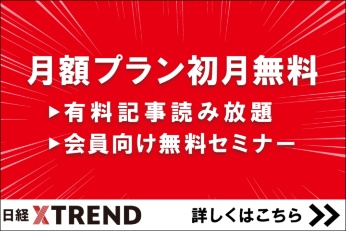Capcom has maintained strong performance for over a decade, even in the midst of a rapidly changing gaming industry. In February 2025, the company released its long-awaited new title, "Monster Hunter Wilds." Its unprecedented start saw it sell 10 million copies worldwide within a month of release, and it's only a matter of time before it becomes the company's biggest hit, not just in the series. In the e-sports field, Capcom successfully held a tournament at the Ryogoku Kokugikan in March 2025, and is beginning to see signs of becoming a viable, independent business. Nikkei Gaming Editor-in-Chief Hirano Aya spoke with Capcom President Haruhiro Tsujimoto about the current and future of Capcom, which continues to achieve its goals, and the challenges facing the gaming industry (the interview was conducted in late May 2025).
- Why Monster Hunter Wilds prioritizes initial action
- How to deal with the high cost of hardware
- High expectations for the team match that excited the Ryogoku Kokugikan
- It's only genuine if the content is worth paying for.
- High affinity between video content and games
- Developing digital talent and strengthening support for indie artists
- I want to present the option of making a living playing the games you love.
Why Monster Hunter Wilds prioritizes initial action
--First, let's talk about your business performance for the fiscal year ending March 2025. Your financial statements are filled with phrases that indicate good performance, such as "12th consecutive period of operating profit growth," "10th consecutive period of operating profit growth of 10% or more," and "record highs for both consolidated sales and operating profit." In the volatile gaming industry, you have maintained stable, high growth. Looking back on the past year, how do you view your company's business?
President Haruhiro Tsujimoto (hereinafter referred to as Tsujimoto): One of the topics is that we were able to release a completely new game in the series, "Monster Hunter Wilds," as planned in February 2025.
This time, we implemented measures aimed at the goal of selling 10 million units within one month of release, and we were able to achieve that. This is the first time we've achieved such results so early, so I think it's been a valuable experience for Capcom that will help us in the future. Honestly, selling 10 million units in one month is no easy feat. We'll be able to use this experience to boost initial sales numbers for upcoming titles as well.
-Was "boosting initial sales" a major theme for Capcom?
Tsujimoto: Capcom's growth has been supported by the penetration, expansion, and strengthening of our digital strategy within the company. Digital sales allow us to sell our follow-up titles (titles released in the previous fiscal year or earlier) worldwide for a long period of time, and also allow us to respond flexibly to our pricing strategies.
Furthermore, it is precisely because they have a large number of popular, high-quality series that they have been able to continue growing to this extent. Repeat titles released many years ago still sell in the millions of units per year, so the effect is immeasurable.
There's no doubt that this business model is the foundation of Capcom's strong performance, but the following themes are essential to continued growth. One of them is how to boost initial sales. Looking at the trends of follow-up titles, we knew that if initial sales were good, subsequent sales would naturally continue to be strong. Therefore, by improving initial numbers, total sales over several years would also increase.
-- "10 million units sold in one month" was an unknown number for Capcom, but it was a goal from the beginning.
Tsujimoto: There are titles in our industry that have achieved similar numbers. Capcom may not have been very conscious of initial sales until now, but since the release of Dragon's Dogma 2 in March 2024, we have been making efforts to improve initial sales. I believe that these efforts have led to this success.
How to deal with the high cost of hardware
--What were the key points that boosted your initial momentum?
Tsujimoto: First of all, we have a track record of having sold a total of 28.5 million copies of Monster Hunter: World. We need to promote Monster Hunter Wilds in a way that effectively appeals to that user base.
One of the key points in this case is price. "Monster Hunter: World," which has been on the market for about seven years, is currently selling for $9.90. In comparison, "Monster Hunter Wilds" is priced at $70. How many users will buy it at that price range?
Furthermore, since the main platform is the PlayStation 5 (PS), we had to take that into account to determine whether we could achieve an initial sales figure of 10 million units. In that regard, we used the data we had accumulated up to that point to develop marketing that would reach the target user demographic.
--You've achieved initial sales of 10 million units. You need to build on that.
Tsujimoto: That's correct. However, we also found that the "PS5 barrier" is unexpectedly large. The console costs about 80,000 yen in Japanese yen. When you factor in the cost of software and monthly subscriptions, it comes to about 100,000 yen at the time of purchase. This is not an amount that can be easily reached, especially for younger generations. This situation is not limited to Japan, but is similar overseas as well.
Our next challenge is to overcome these obstacles and get Monster Hunter Wilds to as many people as possible. Sales will begin in the future, so we are currently formulating a strategy to take advantage of these opportunities to boost sales throughout the year.
The Nintendo Switch 2 was released in June 2025 at a price of 49,980 yen (tax included), and the response was better than we had expected. While prices vary by country, this reaffirmed the high level of cost-consciousness among ordinary consumers.
High expectations for the team match that excited the Ryogoku Kokugikan
--I'd like to ask about your involvement in eSports. In March 2025, the "CAPCOM CUP 11," a Street Fighter 6 individual world tournament, and the "Street Fighter League: World Championship 2024," a team world tournament, were held at the Ryogoku Kokugikan. This was the first time the "CAPCOM CUP" was held in Japan, and the team competitions were also very exciting. How did you feel about it?
Tsujimoto: The Capcom Pro Tour, a one-on-one competition, has been around for some time, starting with Street Fighter IV and continuing to this day. While it feels like it has a long way to go in terms of the participants and the success of the event, it's also true that it was reaching a plateau.
In the world of real sports, there were already signs that fans were shifting from individual matches to team matches, so in 2018, the Street Fighter League was launched in Japan.
Because it is a team competition, the players on the team improve and the depth of the player pool increases. For spectators, it also offers a dramatic element that is not found in individual competitions, such as the frustration of losing and the excitement of winning.
This time, with the CAPCOM CUP and Street Fighter League being held at Ryogoku Kokugikan, the Street Fighter League was scheduled for the last day of the schedule, on a Sunday.
To be honest, I was a little hesitant about making the League, which has a shorter history than the Capcom Cup, the last event, but it ended up being a huge success. It may be because it was started by Japan, but I really felt that the enthusiasm of the spectators for the Street Fighter League was genuine. With 5,000 spectators going wild, it was impressive to see overseas players, who had mainly competed in individual matches up until then, excited and saying, "I'll definitely come back next year!"
As a result, over the five days from March 5th to 9th, 2025, 14,000 people attended, and the total number of online viewers reached over 10 million globally. Given the response, I'm really glad that we held the event in Japan. I had the feeling that Japanese esports itself might have reached a plateau, so I hope to build on this success for future events.
It's only genuine if the content is worth paying for.
-In a 2024 interview, you said that you would first rebuild the Capcom Cup in Japan and then bring it back overseas. Will it be brought back?
Tsujimoto: It's still only the first year, so that's something we'll have to consider going forward. Capcom will continue to run esports as a business. Our goal is to make a profit and distribute it to teams and players, and make it a viable business, so the results at Ryogoku Kokugikan will be a valuable resource for us to consider.
Furthermore, with regards to video streaming, there are issues such as payment infrastructure, and how to charge for it globally is a major challenge. However, after seeing the reaction this time, I felt there was enough evidence that it could be viable as paid content. If this works well, we can expect to generate even more revenue than we do now, including from broadcasting rights.
If the results improve, we can expect sponsorship income and support from various parties, which will allow us to allocate more funds to teams and players and make various investments, which will improve the quality of esports as a whole.
If that happens, more people will want to actually go to the venue and watch it, or even pay to watch the live or archived broadcasts. Only when content like that can be made into a viable business can it become the real deal. That's what Capcom is aiming for.
High affinity between video content and games
--Monster Hunter Wilds is off to a good start, and esports is gaining ground as a business with successful tournaments in Japan. What will you be focusing on going forward to keep this growth going?
Tsujimoto: We are reviving dormant IP (intellectual property) and taking on the challenge of new titles. In 2026, we will release a completely new title, Pragmata. For other titles, we are also scheduling the release of information strategically to coincide with events and other times.
In fact, something surprising happened recently. The anime "Devil May Cry," based on our title "Devil May Cry," began streaming in April 2025 as an original series on the video streaming service "Netflix." To coincide with this, we released "Devil May Cry 5" for $7.90, and within two weeks, the series sold an astounding 2 million copies.
We've held sales to coincide with the release of movies for some time now, but this time it was on a whole different level. The main seller, Devil May Cry 5, was released six years ago, so it shows just how closely the game and movie businesses fit together.
Capcom has been making the digital shift since an early stage, so we have data on how many users there are on a global basis for each title, and where those users are located.
If Capcom joins forces with distribution companies and video production companies, we will be able to increase the success rate of both our businesses, including through efficient promotional activities. We are looking forward to exploring various ways to collaborate with these companies in the future in order to achieve this synergistic effect.
Q: Is there a possibility that Capcom itself could become a video production company? I recall there being talk of that happening before.
Tsujimoto: We are still considering it. However, making movies is a completely different matter from making games. If we were to do it in Hollywood, there would be many things we don't understand, such as relationships with scriptwriters and actors, labor unions, and so on. There was also a Screen Actors Guild strike in 2023. How we can accumulate knowledge about these things within the company is a major issue.
- How do you plan to approach global expansion, which you have been strengthening so far?
Tsujimoto: Digitalization has enabled us to reach countries like Brazil and China, and the number of regions selling more than 1 million units per year has increased. As a result, Capcom's overall sales volume has grown by 13%, from 45.89 million units in the fiscal year ending March 2024 to 51.87 million units in the fiscal year ending March 2025.
As I mentioned in 2024, our next venture is India. In 2024, we will send research teams to Brazil, Indonesia, and Thailand, and in 2025, we plan to send one to the Middle East. We will directly investigate how Capcom games are being played in each country, and after determining the results, we will consider what steps we can take now and formulate a strategy for branding and market formation over the next five years.
We are also focusing on localizing the game, with subtitles available in up to 14 languages including Japanese, and audio dubbing available in up to 9 languages, creating an environment where people from almost all over the world can play the game.
Conversely, we can also see countries and regions where annual sales are less than 100 units. Based on this, we can understand the environment in which games can be played in each area, including the status of the internet and payment systems. We are conducting very detailed research into how we can encourage people to purchase games.
Developing digital talent and strengthening support for indie artists
--Let's change perspective a bit and tell us what you think are the key focuses and challenges for the game industry as a whole from your perspective as the chairman of the Computer Entertainment Supplier's Association (CESA).
Tsujimoto: I became chairman of CESA in 2023, and in 2024 we published the CESA Games Industry Report 2024, a revised version of the previous Games White Paper. Around the same time, momentum was building within the Japanese government to reassess Japan's content industry, and I had been saying that games should be a growth industry in Japan, which CESA agreed with, so I think the new report will have a major impact externally.
CESA has now created an action plan for the next five years and has begun working towards its realization.
First of all, we need to develop human resources. This means developing "digital talent" that includes development, marketing, and promotion. This is something that the game industry needs to do well.
The second is support for overseas expansion. For example, even Capcom spends a considerable amount of time and money on localizing their games, so I think it would be difficult for indie games to do the same. We hope for support from the government regarding overseas expansion, and CESA must also work to promote it.
And finally, support for indie games. Without an increase in new players, games will not develop as an industry. We have launched three action plans - human resource development, support for overseas expansion, and support for indie games - and are considering these as important measures for CESA in each committee.
--It seems like it would cost a fair amount of money to make the action plan effective.
Tsujimoto: The game industry hasn't received any support from the government. If the government or political parties ask us anything, we'll answer them properly, but the problems facing the industry won't be solved by just waiting. It's important that we do things ourselves.
As you said, action plans cost money. Therefore, we must consider increasing revenue from Tokyo Game Show as one of our major sources of income. This will enable us to carry out our action plans and invest in developing the industry. To reiterate, games are one of Japan's growth industries. CESA will play a central role in advancing the three action plans mentioned above to support that growth.
I want to present the option of making a living playing the games you love.
--Among the three plans, human resource development is an issue that all companies must address.
Tsujimoto: I see human resource development as a very big issue. Even though it has grown into such a large industry and continues to grow, there are still many who view games as evil. Children play with great concentration, and there are also adults who spend a lot of time playing games. It's not surprising that some people don't think well of this.
If you love games, you can now choose game development as a future career. If you study games at high school, university, or vocational school, and then get a job at a games company, your chances of success will increase. The world of digital entertainment is expanding, so it's fine to work for a company other than games.
As a game company, we hope to present the option of living by doing what you love, which differs from the conventional idea that the path to success is to aim for a high-ranking school and get a job at a famous company.
--I think Capcom is already a well-known company.
Tsujimoto: I feel like we've finally become a company that parents will recognize. However, it's still not the case that you can't join unless you graduate from a famous university.
Capcom hires over 100 new developers every year, 60% of whom are vocational school graduates. Starting in fiscal year 2025, the starting salary (monthly base salary) for all new graduates will be 300,000 yen per month, regardless of whether they have a university degree, graduate school degree, or vocational school degree.
The reason the CESA Games Industry Report 2024 stated that the average age in the games industry is 37 and the average annual salary is 7.08 million yen was to make it possible to objectively compare it with other industries.
Some people may think that the games industry has a lot of ups and downs. However, it continues to grow, and digitalization has reduced those fluctuations. The working environment in the games industry is much more fair than you might think, with employees being given ample time off (laughs). I wanted to reset the public perception that still remains, which is why I created the CESA Games Industry Report and spoke in interviews like this one.
--Game creator is now a popular profession among the younger generation, but the question is whether companies can use this to secure talent.
Tsujimoto: What should one do to become a game creator? The reality is that there are probably many people who don't know the answer.
That's why it's important to share information about what game creators currently active on the front lines did when they were younger, what they should be doing now, and what they should be studying. The information absorbed during a highly impressionable period is important, so I hope that the seven years of high school and university will be an environment where students can fully study what they love and develop their talents for the future.
Currently, Capcom's employees have a very high level of engagement, at 80%, and I'm pleased that they work with pride and enjoyment. Even from my perspective as the company president, everyone really loves Capcom.
At the heart of this is a corporate attitude that values its users. In addition, the company is proactively working beyond the boundaries of games, such as exhibiting "Monster Hunter Bridge" at the Osaka Healthcare Pavilion at the Osaka-Kansai Expo and hosting events like the "Great Capcom Exhibition." We plan to continue doing things that will amaze many people, not only in games but also in other fields. Please look forward to it.
(Text and composition by Koji Sakai (Nikkei Cross Trend), photos by Hiroshi Nakamura)
This article is part of the series "Nikkei Gaming Editor-in-Chief Interview" If you follow us, you can check the delivery of new articles on the top page or my page, Smartphone app But you can still get notified when articles are updated.
We are asking all users of the follow feature to transfer their data by September 30th. This can be done by simply pressing a button on this page. Thank you for your cooperation.
This article is part of the series "Nikkei Gaming Editor-in-Chief Interview" If you follow us, you can check the delivery of new articles on the top page or my page, Smartphone app But you can still get notified when articles are updated.



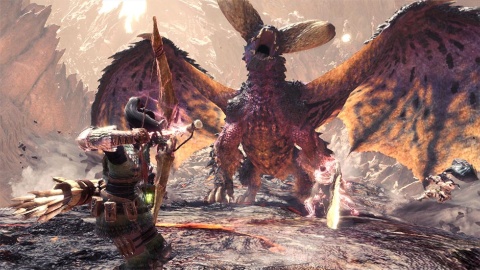
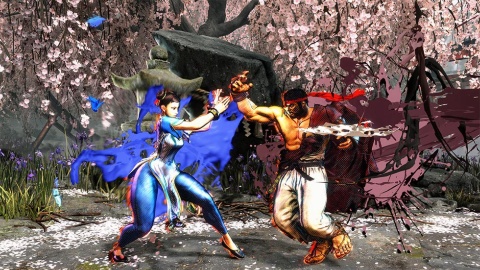


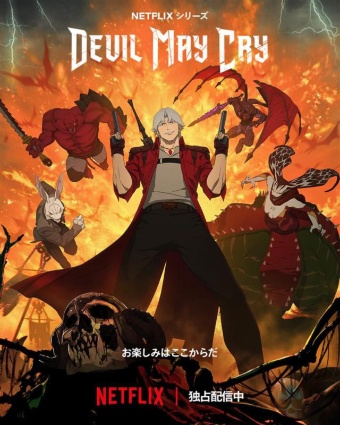

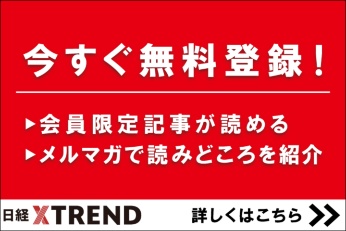
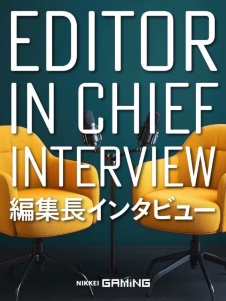

![[Manga] The Frontline of the Concert Business: BABYMETAL's Successful Strategy](https://cdn-xtrend.nikkei.com/atcl/contents/18/00831/00024/nxr_s.jpg?__scale=w:226,h:170&_sh=0d40fd0960)


![Behind the Scenes of "Gakuen Idolmaster" Community Creation: Constraints and Production Consequences [CEDEC2025]](https://cdn-xtrend.nikkei.com/atcl/contents/18/01182/00011/nxr_s.jpg?__scale=w:226,h:170&_sh=0540cd0130)
![Tokyo Game Show 2025 Business Day registration now open, keynote speech by SIE [TGS2025]](https://cdn-xtrend.nikkei.com/atcl/contents/18/01222/00001/nxr_s.jpg?__scale=w:226,h:170&_sh=0860dd0c70)



